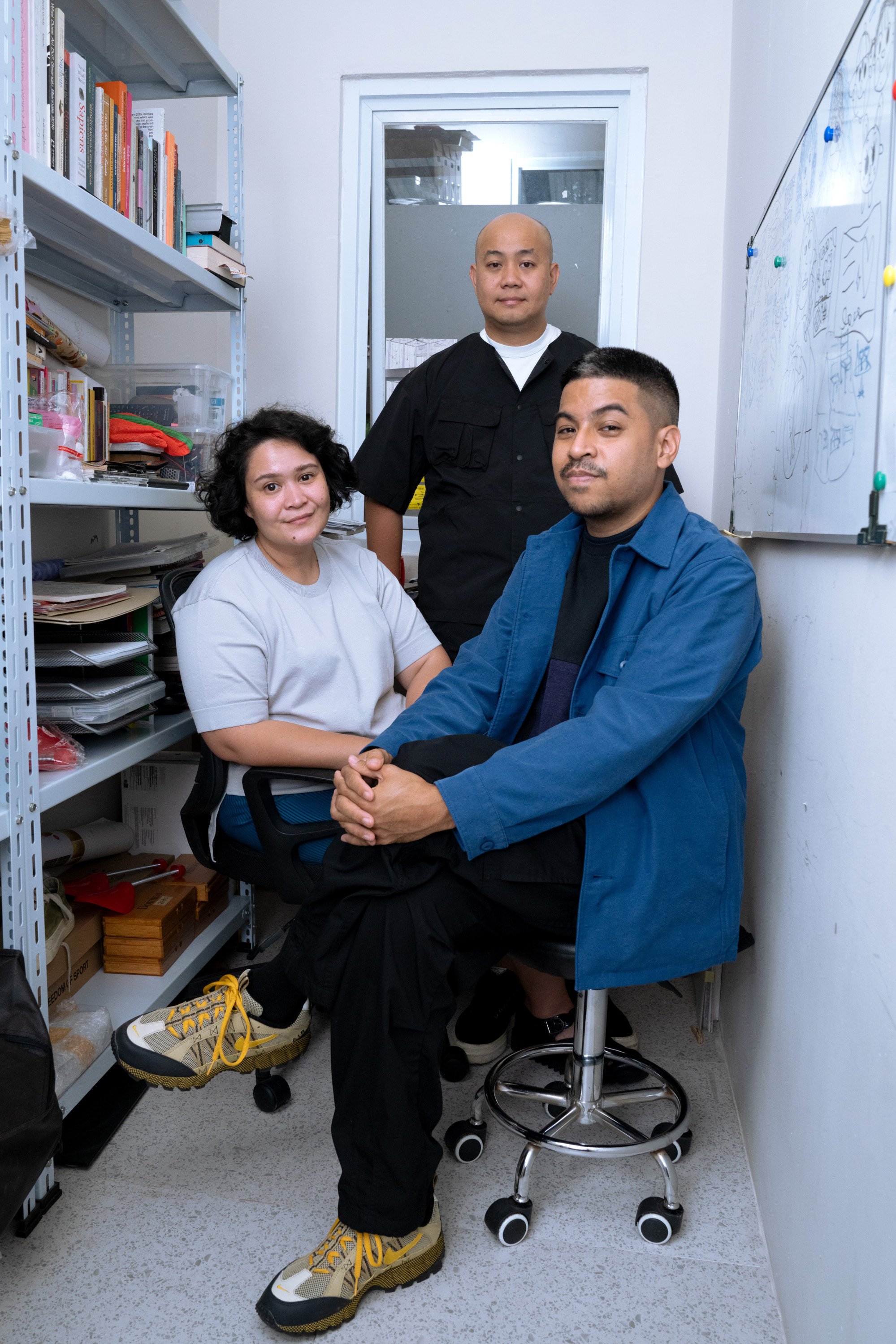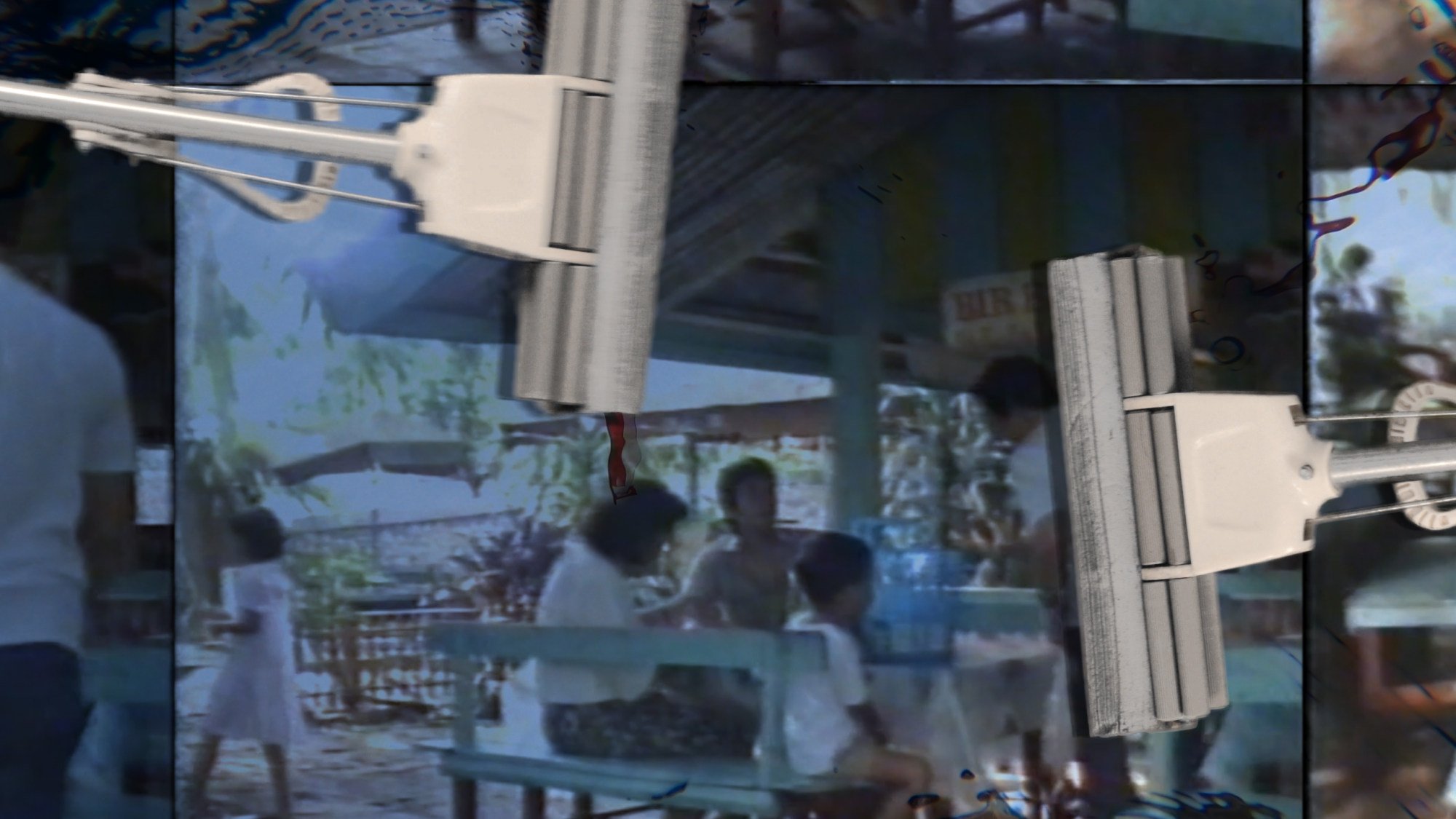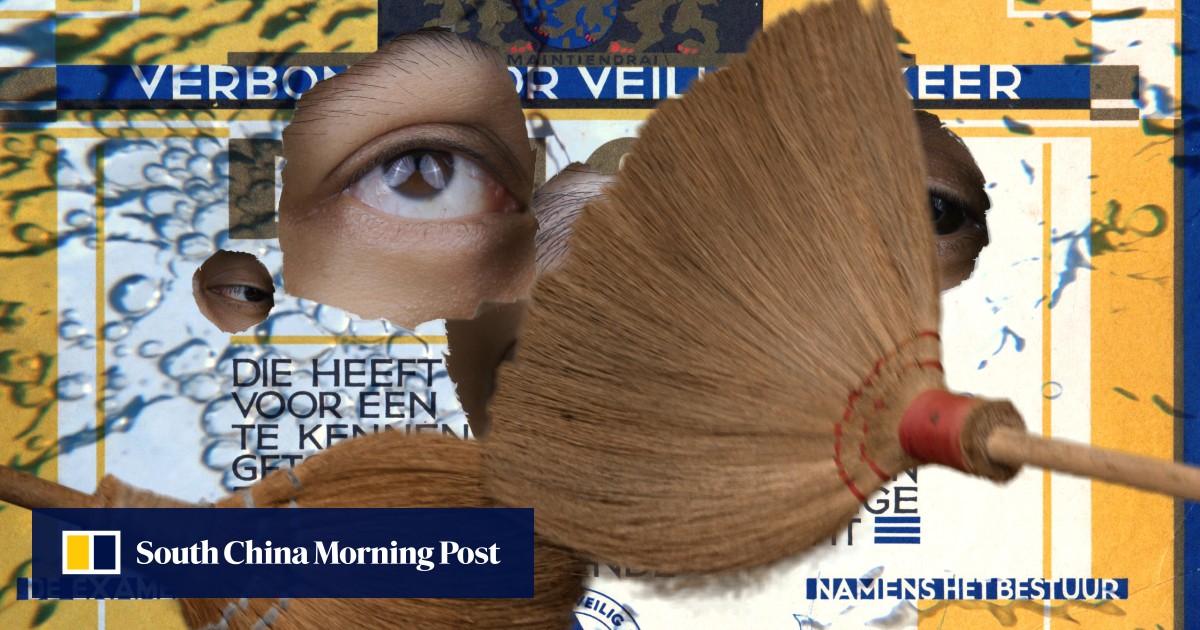For their latest art project, the Indonesian collective Tromarama is baring intimate personal memories on the most public of screens in Hong Kong.
Called Growing Pillars, the latest media artwork to be commissioned for the M+ Museum Facade is made from scanned images and objects from the private archives of the artists and their families.
Frames showing such materials as a record of Indonesian citizenship and a family photo album float across the 110-metre-wide LED screen on the West Kowloon harbourfront facing Hong Kong Island.
Various “cleaning” motions, such as a hand seen wiping a tabletop, work as transitions to new collections of items and images.
A lot of these objects had not been out in the open, even within the artists’ families, for decades. In fact, it was only through this particular commission that the artists discovered new aspects of their family histories.
The collective says that it wants to reverse the conventional, top-down idea of a public monument by bringing such personal memories to the public eye.
Young naked women are their canvas – Hong Kong artists’ erotic nude art
Young naked women are their canvas – Hong Kong artists’ erotic nude art
“The first time we visited M+ to physically see the facade, the impression we had was that it was like a monument,” says Herbert Hans, one of the three members of Tromarama, which is based in Bandung and is best known for making stop-motion animations.
“The three of us had always experienced monuments as a top-down initiative. Now that we had a chance to make our own monument, we wanted to make it a bottom-up initiative. That’s how we started talking about family archives.”
Private and public memory cannot exist without one another, he adds, saying that they intended to make the video look like “a stream of consciousness”.

Digging through drawers and cabinets at home, Hans found parts of his father’s story that he hadn’t known about.
“In one of the cabinets in my family house that I never opened before, I found my father’s record of Indonesian citizenship from decades ago. I realised that after he immigrated from China to Indonesia and was applying for Indonesia’s citizenship, he had to change his Chinese last name to an Indonesian one,” Hans says.
“These kinds of topics had never been a discussion at the dinner table.”
Personal memories are impacted by the public and you cannot separate the private and the public realm. The private is always constructed by the public
Another object that appears in Growing Pillars whose connotation is not immediately obvious is a photo album owned by the grandmother of Ruddy Hatumena, another Tromarama member, full of photos of all the weddings that took place in the family.
At a quick glance, the album may look like a collection of some of the most joyous and intimate memories of a family. But what is missing tells a painful story.
“I decided to get married to someone against the approval of my family,” Hatumena says. “I converted my religion and my family didn’t come to the wedding. My decision created a lot of friction in the family. It’s a pity that I didn’t end up in my grandmother’s collection.
“Although it was something that I chose, the consequences were not purely happy ones. For me, Growing Pillars is a safe space where I can express both my good and bad memories.”

Some of the items Febie Babyrose, the collective’s third member, chose for the work were the blue Dutch figurines that filled her grandmother’s home.
“These blue ceramic figurines decorated every corner of her house, including on the dining table,” Babyrose says. “I dug into that memory and tried to explore and reimagine my grandmother’s identity – being raised as Dutch but choosing to be Indonesian.”

The artist collective says that through making this work, it wants to shine a light on how memories, however private and undiscussed, cannot exist in a vacuum on their own.
“As a person, archives are very private. But in a society, you cannot live alone,” Hans says. “Therefore personal memories are impacted by the public and you cannot separate the private and the public realm. The private is always constructed by the public.
“Bringing such private memory to the very forefront of public space and letting the two clash with each other is our way of reflecting on how private and public memory are inevitably intertwined and influence each other.”
Growing Pillars will be screened on the M+ Facade every day between 7pm and 9pm. Until December 31.
